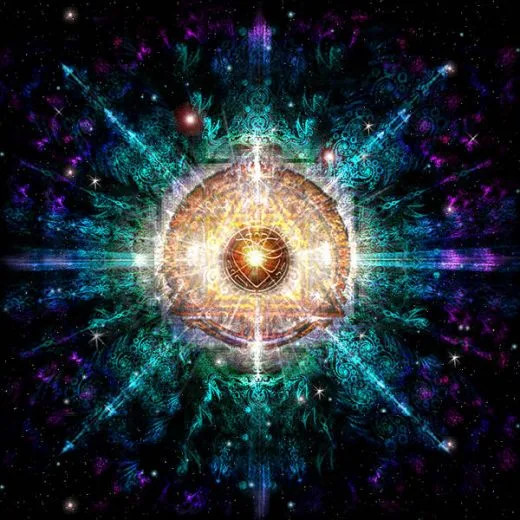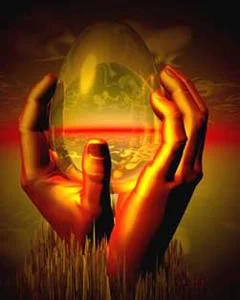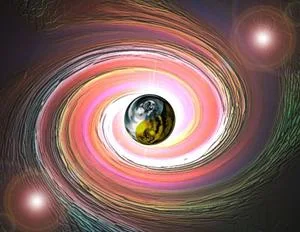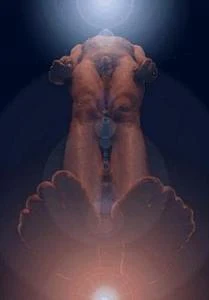All creatures are what they are because of the Karma generated by the actions from their previous lives and the present one. (Buddha)
It is natural for a common man to believe that he is a prisoner of his own destiny. But, paradoxically, in each man there is, potentially, the feeling that he is endowed with free will.
In order to better understand the manifesting ways of these essential aspects, we must take into consideration the terms of cause and effect that always determine our destiny or our own karma, a term of the yoga spiritual system.
WHAT IS KARMA?
- The word karma comes from Sanskrit, from the verbal root kri meaning to do or to be active. Thus, the literal meaning of the term is fact or activity.
- In their daily life, people encounter three fundamental types of activity: a physical, a mental or a verbal one. Each activity has a reaction or an effect. In the Buddhist philosophy, karma represents all the facts, words and thoughts that have correspondent effects that decisively influence destiny at each stage of your life.
- Causality does not have very precise limits and its principle influenced science allowing its progress. For example, Isaac Newton explains the basics of human destiny like this:
- When we find that something is going on we assume that there is another event preceding it from which the first one derives under certain rules.
- Thus, determination appears as a practice of the causality principle (according to which each cause has an effect) in the phenomenal world.
- In the evolution of scientific thinking, there are scientists that approve the principle of absolute determination and others that believe in indetermination as there are some causal series, apparently unexplainable, making the hazard or uncertain possible.
- All philosophies mention the principle of determinism. Ever since ancient times the principle of causality has been approved as a law that rules the actions of man and his close or distant consequences.
- Thus, for example, Hinduism and Buddhism have developed a theory of karma that explains everything that might come up in our life.

- Man can turn “poison into nectar. All human beings that have reached a certain level of spiritual evolution have always felt that they can resist the karmic stream that drags them in a direction established by the nature of their past actions.
- There are many examples of spiritual heroes, saints or wise people, who could defeat their destiny and triumph over a negative situation shown, for example, in their astrological chart.
- Occult astrology states that the stars influence but do not inexorably determine, meaning that the subtle astral forces do not decide on ones destiny and that a person can transform their destiny thanks to free will and helped by spiritual discrimination, a strong will and wisdom.
- Hindi tradition asserts that a fully spiritually accomplished yogi becomes the master of his own stars.
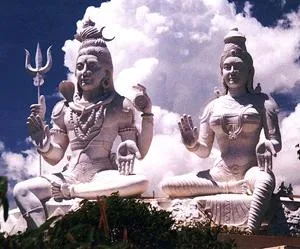
The principle of causality works efficiently if it is integrated in the entire Manifestation, which naturally means that each event or phenomenon has a certain cause and thus, there is no hazard or coincidence as everything in the perfect and sublime Creation of God is correlated and manifested according to the eternal and unchangeable divine macro cosmic laws.
Many people consider that life problems like poverty, richness, infirmity, etc, are the fruits of the whims of fate.
In fact, everything has a cause and is ruled by very precise laws that certify first of all the necessity of multiple existences in manifestation, that is, of re-incarnation.
The well-known text of Hindi spirituality, Bhagavad Gita says: Birth is necessarily followed by death and death by rebirth. Just as a man throws away his worn out clothes and puts on other ones, so the inhabitant of a body throws away his old covers to put on new ones.
These changes of state, these returns in the physical plane and these flights to the superior levels of Creation are ruled by a universal and implacable law.
Life and death succeed one another in a rapid rhythm, similar to the two fundamental phases of the human breathing (inhalation and exhalation).
The great liberated Shankaracharya said: The rhythm that makes the human being pass to a well established state and form on earth (that is, on the physical plane) and which then sets him free again, is a cosmic law that is applied in each mens evolution.
Owing to this law, a man can hope to reach a more and more elevated state of consciousness and eventually, to separate from the restrictions of this cosmic law and to freely cooperate to their display.
LOST IN ILLUSION
What chains the human being in the cycle of successive processes of birth and death (which the yogi tradition calls samsara), are countless desires that generate attachments.
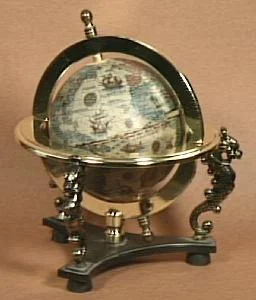 Attachment is an inexhaustible source of suffering because these unsatisfied desires generate frustration, and frustration generates anxiety, fear, illness, and other physical and psychic disorders.
Attachment is an inexhaustible source of suffering because these unsatisfied desires generate frustration, and frustration generates anxiety, fear, illness, and other physical and psychic disorders.Maya is the universal illusion or that terrible force that gives birth to ignorance, allowing the human being to see only the differentiated aspect or the multiplicity of the universe in the essential reality of its profound unity.
Desires chain the human being to the world of appearances; they are born from ignoring the true and divine essential nature within each of us, which is the Divine and Eternal Supreme Self (Atman).
Thus, Desires become the seeds of future re-incarnations, writes Swami Sivananda.
By searching deeper inside ourselves, we discover that first of all, the ego lies at the base of all our common wishes; that desire chains the human being to objects because of the blindness generated by Maya (illusion), because of ignorance and lack of spiritual discrimination.
FREE WILL
“Negative karma that has not manifested yet can and must be avoided.” (Patanjali, chap. 2, sutra 16)
Every human being must bear the consequences of actions done with his thought, word or body. Spreading his doctrine in the whole of India, Buddha himself used to say that “all creatures are what they are as a consequence of the karma resulted from the actions of their past and present lives.”
Thus, we create the auspicious and adverse conditions and circumstances of our lives and we are also responsible for our present suffering or satisfaction. All these are generated by the chain of causes and effects determined by actions from our past and present life.
RESPONSIBILITY – THE WORD OF DESTINY
Our present actions, thoughts, ideas or tendencies are precisely determined by factors we are responsible for, essentially, these factors can be divided into the following types of determinations:
1. The determination generated by our past-lives actions
2. The determination generated by biological conditionings
3. The determination caused by our present life actions
4. The determination caused by our habits
5. The determination caused by the exterior influences of nature
6. The determination caused by the present social rules during our life
7. The determination related to the nature of our samskaras (the subtle engravings from our subconscious), whose restricting and limiting role is decisive.
Here we can add two major types of determination:
1. The determination that facilitates our spiritual evolution. This type of determination is influenced by the super conscious, and by the divine light cast by the Supreme Self (Atman) on our mental level and subtle bodies. We can associate this type of determination with mans superior nature.
2. The determination that stops our spiritual evolution. It is an appeal to all that is inferior, illusionary, ephemeral, and not related to our true essence. This type of determination drags the human being towards the inferior levels of manifestation.
YOU ARE WHAT YOU LOVE
- All these aspects of determination, which are again and again made actual by new desires and actions, make up a persons karma.
- The word karma also designates the action and its consequence, in occult literature; karma represents all the consequences of an action done in a past and the present life.
- The doctrine of karma represents, in fact, a justified extension of the law of cause and effect, consisting of the physical, psychic and subtle nature of all the actions done by a human being.
- The law of karma can be limited to the following general statement: All causes generate an effect. This truth was expressed in the following proverb: Man harvests what he has sown.
- Karma is always generated by actions, thoughts, feelings inspired by desire, by ignorance, but this law always acts perfectly, objectively and in an inexorable way.
- Thus, an egoistic and bad action will cause future suffering that will punish that bad action according to its seriousness.
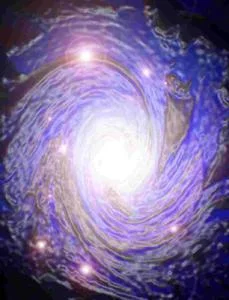
The actions from our past lives condition our birth in the present incarnation and determine the social, economic, spiritual circumstances in which we live our life.
Our thoughts, feelings and actions have had an important role in the situations we face now. It is us who, through our free will, have created our experience field in life by the means of our more or less conscious choices from our past lives.
CHOOSING FREEDOM
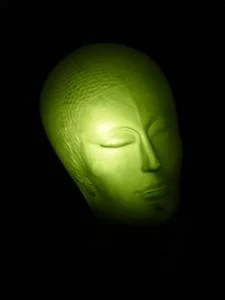 Individual karma may have different aspects that should be known in order to perceive the nature of the determination that influences us. Thus, there are three types of karma:
Individual karma may have different aspects that should be known in order to perceive the nature of the determination that influences us. Thus, there are three types of karma:1. SANCHITA KARMA, or the karma of our past lives actions. It is the so-called potential karma.
2. PRARABHDA KARMA, or the consumed karma until the end of our present life.
3. AGAMI KARMA, or the karma we have acquired as a consequence of our present actions. We will face this karma in the future.
In Vedantic literature there is a symbolic image that facilitates a better understanding of each of these three types of karma. Thus, an archers quiver full of arrows represents SANCHITA KARMA; the shot arrow represents PRARABHDA KARMA; the prepared arrow, which will be shot later, is AGAMI KARMA.
Thus, we draw the fundamental conclusion that the laws that rule and will rule our own destiny. Therefore, we should consider the problem of choice or of using our free will.
Even if people are often limited in their actions, occult tradition asserts that no matter what their deeds, they can use their free will and that exterior circumstances and events that affect them are the consequences of the karma generated by their own thoughts and actions.
THE INSTRUMENTS OF FREE WILL
The problem of free will is complex. In order to better comprehend these mysteries of manifestation we can make a comparison between the Universe and man.
In the Universe many phenomena are influenced by cosmic determinism but there are fields of specific actions that are not subject to the law of causality.
Mans situation is similar; our psychic world sets in action laws, which are complex when compared to the ones ruling the outer world and the elementary particles, because the human being is highly aware of itself and possesses a clear will. This awareness and clear will are the fundamental instruments of manifestation for free will.
UNDERSTAND THE PAST AND MASTER THE FUTURE
The fated karma, which will manifest in this life (PRARABDHA KARMA) has all the chances to do so unless we do something to transform our own nature and dont ignore the true goal of life.
 On the contrary, in the case of a man who permanently improves his moral and spiritual nature, who (PRARABDHA KARMA) which was created before this present incarnation, wont be implacable anymore. It will be changed and attenuated, sometimes in amazing ways. is patient, skilful, with a strong will, who beneficialially uses his free will, the matured karma
On the contrary, in the case of a man who permanently improves his moral and spiritual nature, who (PRARABDHA KARMA) which was created before this present incarnation, wont be implacable anymore. It will be changed and attenuated, sometimes in amazing ways. is patient, skilful, with a strong will, who beneficialially uses his free will, the matured karmaThe more people use their free will, the harder it is to foresee their future. That is why a yogi following a spiritual path is said to become the master of his own destiny.
It is important for us to understand that we are not mere puppets in the hands of a blind fatality and that our life is not ruled by coincidences or hazards. Peoples fates are very different just like the choices we make through our free will.
A Buddhist text (Majjima Nikaya) explains the differences between human beings: Just like the trees are different according to their seed, so the peoples fates are different, according to the actions whose effects they have to face.


